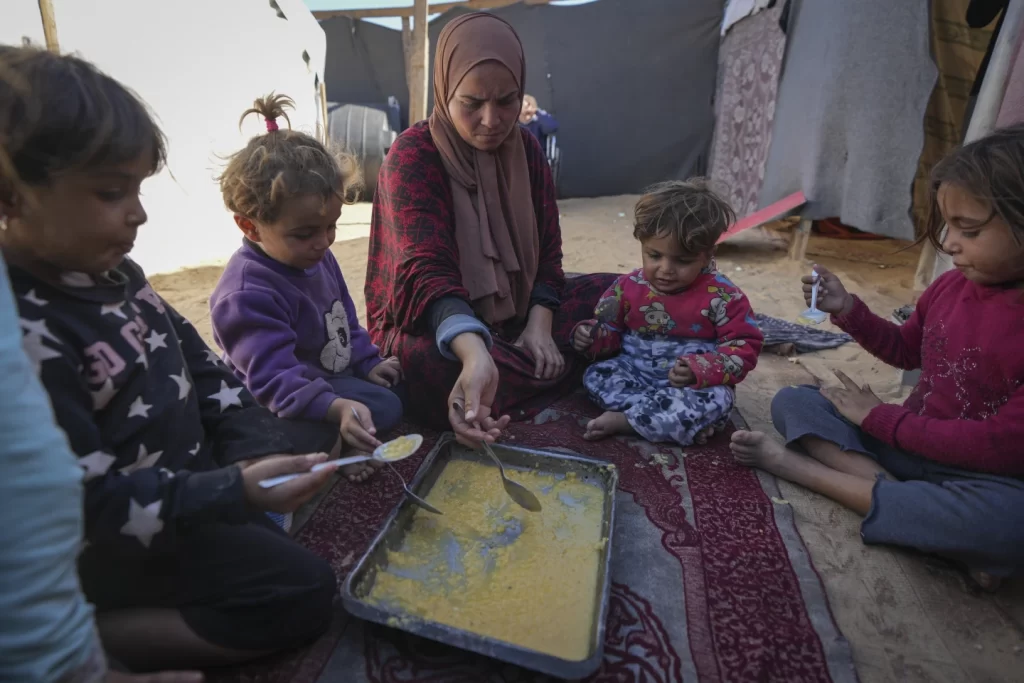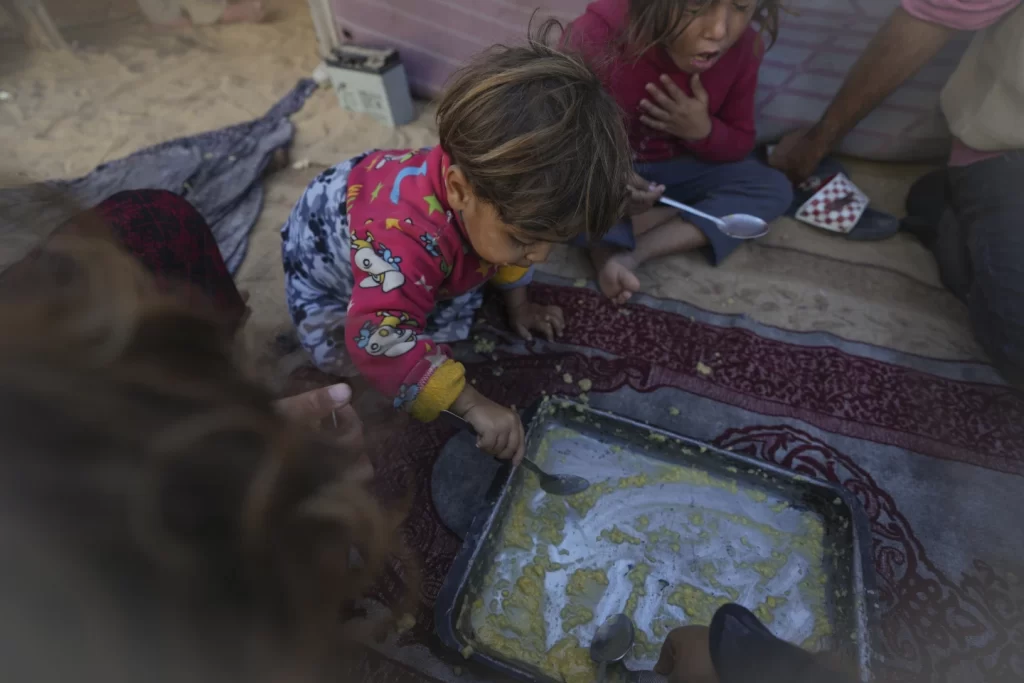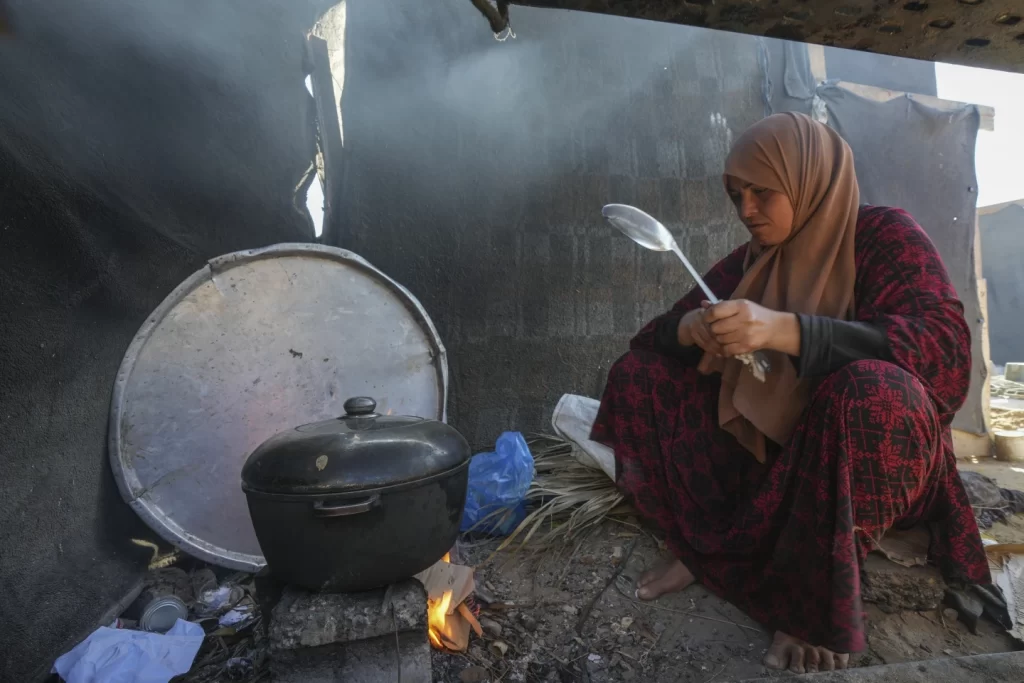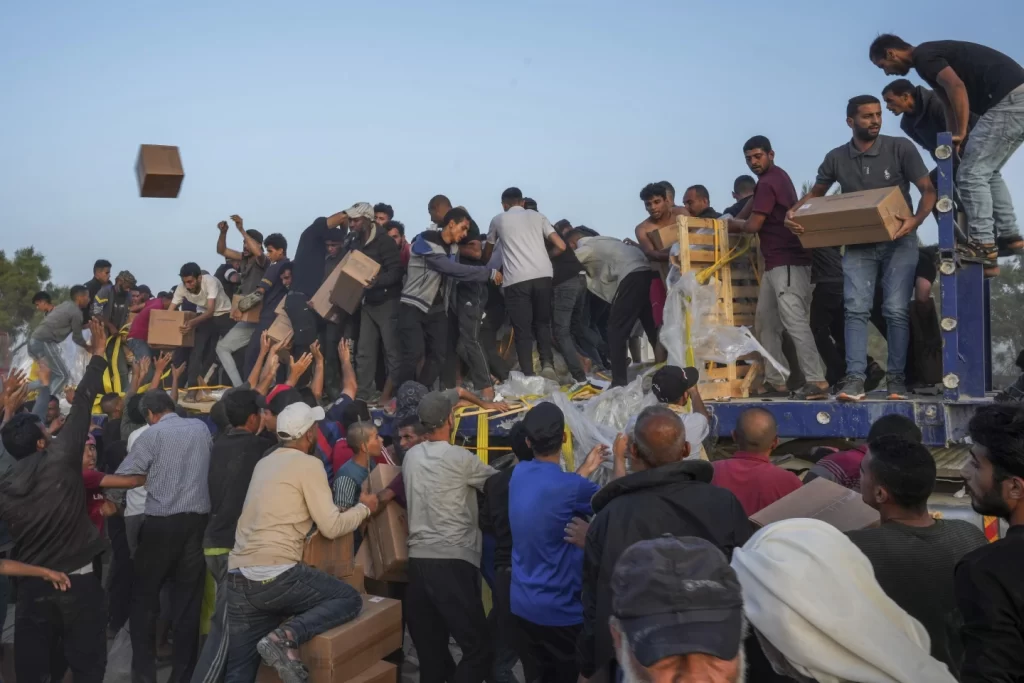In a makeshift tent in central Gaza, Yasmin Eid stirs a small pot of lentils over a fire of twigs and paper scraps, preparing the day’s only meal for her family of six. The scene, increasingly common across the Palestinian enclave, illustrates the deepening humanitarian crisis as food assistance dwindles and prices soar beyond reach.

“My girls suck on their thumbs because of how hungry they are, and I pat their backs until they sleep,” Eid said, describing her four daughters’ nightly struggle with hunger. Her family has been displaced five times since Israel launched its offensive against Hamas in October.
The situation has deteriorated sharply following last weekend’s armed robbery of nearly 100 aid trucks in southern Gaza, prompting the United Nations humanitarian office to warn of a “stark increase” in severe hunger across central and southern regions. Basic commodities, when available, have reached astronomical prices: bread costs $13 per bag, onions $10 per kilogram, and cooking oil $15 for a medium bottle.

Israel maintains it places no limits on humanitarian aid entering Gaza, citing the recent opening of a new crossing point. However, military figures reveal a dramatic decline in aid deliveries, from over 4,200 trucks in September to approximately 1,800 in October. Current projections suggest about 2,400 trucks might enter in November, less than half the pre-war average of 500 daily trucks.
The United Nations reports that less than half the arriving aid reaches its intended recipients due to ongoing combat, Israeli movement restrictions, and deteriorating security conditions following the collapse of local law enforcement. Hamas-run police have largely disappeared after Israeli airstrikes targeted their facilities.

Local charitable organizations struggle to meet overwhelming demand. The Gaza Soup Kitchen, which formerly operated on $500 daily, now requires $1,300 to serve half of the 1,000 families seeking assistance each day. “We can go to the market on one day and buy something for $5, and then go back in the afternoon to find it doubled or tripled in price,” said co-founder Hani Almadhoun.
The crisis intensified as the International Criminal Court issued arrest warrants Thursday for Israeli Prime Minister Benjamin Netanyahu and his former defense minister, accusing them of using “starvation as a method of warfare” — charges Israel strongly denies.
The humanitarian emergency follows the October 7 Hamas attack that killed 1,200 people in Israel and took about 250 hostages. Israel’s retaliatory campaign has killed over 44,000 Palestinians, according to local health authorities, while displacing most of Gaza’s 2.3 million residents.

Despite a U.S. ultimatum in October threatening to curtail military support unless aid flow increased, the Biden administration has declined to take action, citing limited progress. Meanwhile, Israel has severed ties with UNRWA, the main U.N. aid agency, over allegations of Hamas infiltration, which the U.N. denies.
For Palestinians like Hani Eid, Yasmin’s husband, the political maneuvering means little as his family of 21 struggles to survive. “I find it difficult to talk about the suffering we are experiencing. I am ashamed to talk about it,” he said. “What can I tell you? I’m a person who has 21 family members and is unable to provide them with a bag of flour.”



